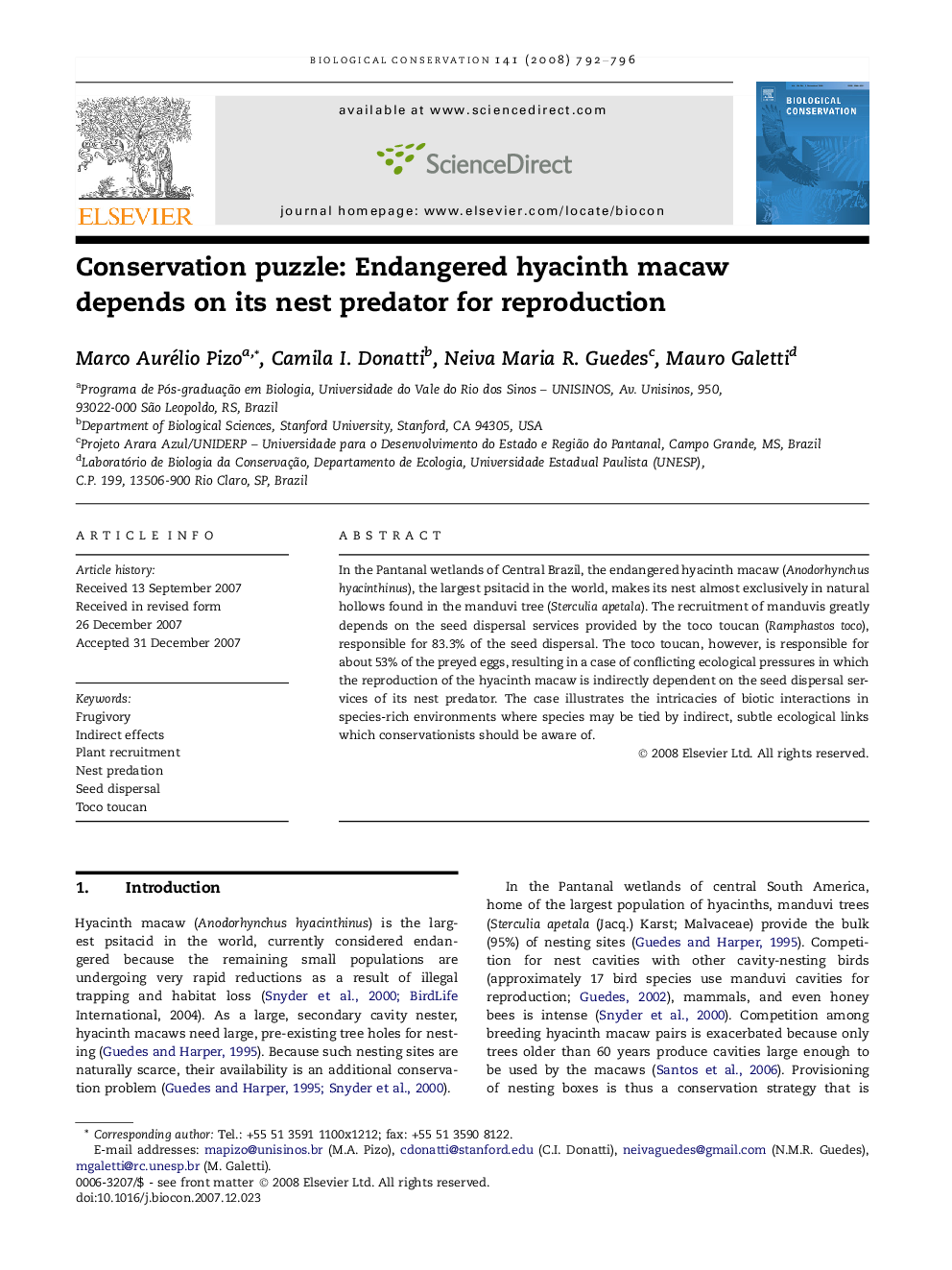| Article ID | Journal | Published Year | Pages | File Type |
|---|---|---|---|---|
| 4386737 | Biological Conservation | 2008 | 5 Pages |
In the Pantanal wetlands of Central Brazil, the endangered hyacinth macaw (Anodorhynchus hyacinthinus), the largest psitacid in the world, makes its nest almost exclusively in natural hollows found in the manduvi tree (Sterculia apetala). The recruitment of manduvis greatly depends on the seed dispersal services provided by the toco toucan (Ramphastos toco), responsible for 83.3% of the seed dispersal. The toco toucan, however, is responsible for about 53% of the preyed eggs, resulting in a case of conflicting ecological pressures in which the reproduction of the hyacinth macaw is indirectly dependent on the seed dispersal services of its nest predator. The case illustrates the intricacies of biotic interactions in species-rich environments where species may be tied by indirect, subtle ecological links which conservationists should be aware of.
